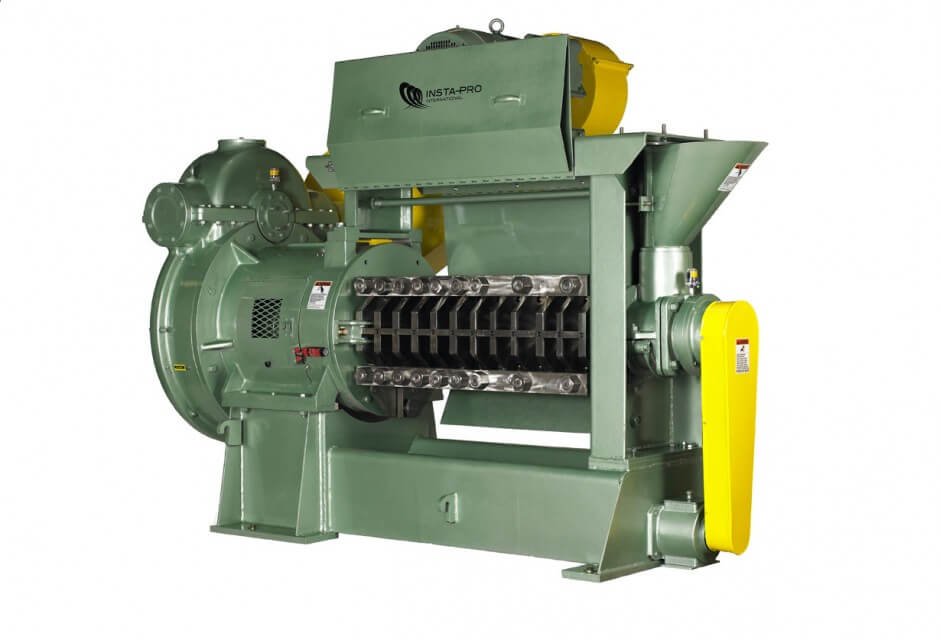Oil Press Cage Maintenance

Of all the maintenance duties involved with an ExPress® (extruder and oil press) System, replacing cage bars and reshimming the cage is probably the most important. And most tedious.
Luckily, the oil presses don’t require as much maintenance as the extruders due to the fact that they don’t operate under as much pressure. The press main shaft is pretty straight forward. You replace the worn screws and spacers in the same configuration they come off the shaft. It’s heavy work, but not hard to get right as long as you keep track of the order the screws come off the shaft.
The knife bars are also fairly simple. Check for wear, remove and reinstall checking for clearance and position as it relates to the screw spacings.
The cage is a whole different matter. Cage maintenance involves replacing worn cage bars and shims and occasionally worn pressure bars and other parts of the framework.
The cage bars themselves have a flat side and a beveled side which must be installed in one direction. Typically cage bars can last in the 6,000 to 8,000 hours range. Knowing when to change the bars is dictated by several things:
- Has the oil residual in the finished product increased?
This could be caused by high moisture raw ingredients or ingredients with a higher than normal oil content. If not, check the press for wear, especially the outlet screws and the clearance between the choke and choke sleeve. - Have you noticed an increase in the amount of fine particles (footes) exiting the cage during production?
High moisture in the product can also cause this. This can also be the result of overfeeding the press.
Next is a visual inspection of the inside of the cage. The most visible wear in the cage will be at the choke end.
The next place wear will be evident is where the hump spacers are positioned. If severe grooves are worn in the cage bars, it can distort them to the point that they need replaced.
The last thing to do is use a feeler gauge to determine if the spacing between the bars is correct.
Spacing is determined by the product being pressed and the position of the chamber in the cage.
As with all production, I go by the old motto “If it ain’t broke, don’t fix it.” We had one customer who got well over 20,000 hours out of a set of cage bars. If oil residuals are creeping up, and you notice an increase in footes, it may be time to change the cage bars.
Do make sure to check all of the other production parameters and ingredients first.



